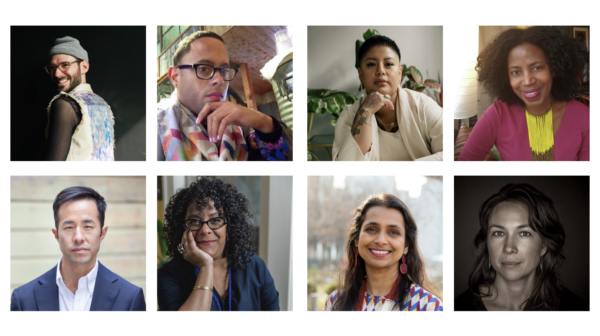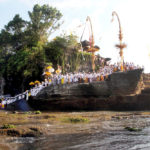Untitled (Figure no. 1)
2020 - Sculpture (Sculpture)
212 x 38 x 46 cm
Oren Pinhassi
Oren Pinhassi’s work examines the relationship between the human figure and the built environment. His hybrid sculptures, often somewhat emaciated, hover between the figurative and the architectural. In the case of The Crowd , a series of sculptures which evince architectures of control – where humans act and exert power – we find voting booths, segregation cells, institutional desks, places where bureaucratic exchange become spaces of bodily desire, complete with sexual appendages. Untitled (Figure no 1) resembles a voting booth, or even a confessional, but it is unmistakably a figure with protuberances for knees, legs, head and torso. The sculpture becomes a fantastical creature situated somewhere between the human and the mechanistic. The grey uniformity of the surface is characteristic of modernist architecture, especially Brutalism, but the sensuous nature of the work belies this purist aesthetic. The interrelationship of the architectural and the human points towards a futuristic hybridity but the social nature of the works, however, is counteracted by their strong sense of independence and isolation. Even when seen in groups they remain separate, mute. Created during a period of confinement they represent the sense of abandonment, or redundancy and isolation felt during this time. Pinhassi’s sculptures are haunting, suggesting the current emptiness of human existence. Much of Pinhassi’s work is concerned with human vulnerability and obstructions that prevent human interaction.
Oren Pinhass’s practice integrates architecture and sculpture in the making of fantastical forms, employing found objects as well as replicating such objects in various media. His sculptures are frequently a combination of the superfluous and the ergonomic, erring towards the utopian with a nod to arte povera. Pinhassi seeks to collapse the distinctions between categories, and in doing so echoes, but does not resemble, the earlier work of the Israeli-French artist Absalon. Pinhassi’s work has a strong material presence, based on the pigmented plaster and sand composite with which he builds up his objects on welded steel armatures. More than mere presences, however, they mimic objects in the world and seek to render visible the way that humankind builds the world in its own image. Chairs and limbs become interchangeable, voting booths become personages. The aesthetic is sparse but resonant.
Colors:
Related works sharing similar palette

© » KADIST
Sheroanawe Hakihiiwe
2019Wateoma husipe / Larvas de oruga / Caterpillar larvae by Sheroanawe Hakihiiwe exemplify his most abstract work, where he choses particular elements of a living organism to create his renditions...

© » KADIST
Daniel Boccato
2017Birdstones is a series of flat concrete slabs made from moldings of different shapes, each with two small holes...

© » KADIST
Valérie Jouve
2000Like many contemporary photographers who play with the codes of realism, Valérie Jouve composes her images, having already a more or less predetermined result in mind, in order to deliver a complex representation of the world instead of a bold presentation of facts...

© » CREATIVETIME
Creative Time's First Think Tank Now Public - Creative Time Creative Time’s First Think Tank Now Public March 3rd, 2022 Tweet Email For the past year, the Think Tank has served as an incubator and forum for reframing conversations and decision making processes, premised on an understanding of arts and cultural spaces as necessary points of intervention toward wider societal transformation...

© » KADIST
Nicolás Paris
2012Nicolas Paris studied architecture and worked as an elementary school teacher before he decided to become an artist...

© » KADIST
Natasha Wheat
2011Wheat’s work is built on a strong conceptual framework that weaves together commentary on social and political issues and the radical potential for change...

© » KADIST
Gan Chin Lee
2019In Studies of Chinese New Villages II Gan Chin Lee’s realism appears in the format of a fieldwork notebook; capturing present-day surroundings while unpacking their historical memory...

© » ARTNEWS RETROSPECTIVE
Mary Weatherford Revisits an ARTnews Profile of Joan Mitchell – ARTnews.com Skip to main content By Alex Greenberger Plus Icon Alex Greenberger Senior Editor, ARTnews View All September 4, 2020 10:27am ©ARTnews In 1957, art critic Irving Sandler paid a visit to the studio of painter Joan Mitchell , an Abstract Expressionist known for her brushy images capturing nature...

© » KADIST
Sawangwongse Yawnghwe
202122022021, Yawnghwe Office in Exile by Sawangwongse Yawnghwe belongs to a body of work made in response to the Myanmar military coup that began in February 2021...

© » KADIST
Felipe Arturo
2012Primero estaba el mar ( First Was the Sea , 2012) is a system of equivalences between syllables and silhouettes of waveforms cast in cement...

© » KADIST
Allora & Calzadilla
This installation combines the display of real objects with the deceptively painterly amalgamation of their content as the subject of a photograph...

© » KADIST
Gan Chin Lee
2019In Studies of Chinese New Villages II Gan Chin Lee’s realism appears in the format of a fieldwork notebook; capturing present-day surroundings while unpacking their historical memory...

© » KADIST
Karl Haendel
2011Haendel’s series Knights (2011) is a set of impeccably drafted, nine-foot-tall pencil drawings depicting full suits of armor...

© » KADIST
Colter Jacobsen
2010The title Untitled Passport II was first used by Felix Gonzalez-Torres in an unlimited edition of small booklets, each containing sequenced photographs of a soaring bird against an open sky...

© » KADIST
Power Forward Wednesday, January 24, 2018 Bar 6pm, Program 7pm Ezekiel Kweku & Ameer Lo ggins in conversation, moderated by Sarah Hotchkiss Editors Astria Suparak & Brett Kashmere in person To celebrate the launch of Sports , the newest issue of artist-run publication INCITE: Journal of Experimental Media , KADIST hosts an evening of athletics, politics, art, and dialogue...

© » KADIST
Gan Chin Lee
In Studies of Chinese New Villages II Gan Chin Lee’s realism appears in the format of a fieldwork notebook; capturing present-day surroundings while unpacking their historical memory...




